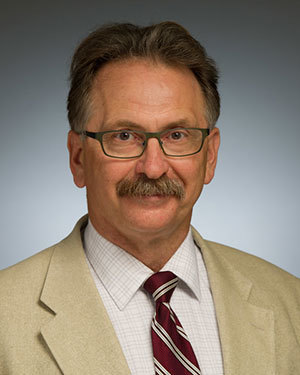Machan Wins Fulbright Award
English professor Tim Machan and another professor in the University of Notre Dame’s College of Arts and Letters, political scientist Benjamin Radcliff, recently received grants from the Fulbright US Scholar Program, which will allow them to travel to Europe to study their respective topics of interest.
“The competition is fierce,” said Kenneth Garcia, associate director of the Institute for Scholarship in the Liberal Arts. “Fulbright awards are very prestigious fellowships and very difficult to get, so having two professors receive Fulbrights in the same year is a real honor for the University.”
 Tim Machan
Tim Machan
While folk tales such as “Beowulf,” timeless poetry like Chaucer’s “Canterbury Tales” or J.R.R. Tolkien’s epic fantasy “The Lord of the Rings” are familiar examples of English literature, most readers are not aware of their surprising connection with Scandinavian cultures, Machan said. Through the Fulbright Program, he will travel to Oslo, Norway, to explore the roots of these English classics during the spring 2014 semester.
“Much of how 19th-century Britain imagines its medieval past is in fact borrowed from Scandinavia,” said Machan, a professor in the Department of English.
“The Norwegians and Danes who actively harried and colonized England during the medieval period left lasting impacts on history, language and cultural practices.”
While in Norway, Machan will access rare and non-circulating archival resources at the University of Oslo’s library, consult with experts in the field and improve his ability to read Norwegian.
Upon his return, he plans to use his research to write a book offering a trans-historical examination of literary contact between Scandinavia and Britain, tentatively titled “A Northern Light: The Scandinavian Invention of the English Middle Ages.”
In addition to his research, Machan will be teaching at the University of Oslo, an experience he says will benefit him both personally and professionally.
“Teaching in Norway about the language and literature of English will offer me the opportunity to reflect on the content of my courses, on my pedagogy and on the language’s changing role in the world today,” he said.
“It will allow me to experience firsthand the reality that English is not the special language of the United States, but a vehicle of global communication.”
Machan has taught English linguistics and medieval literature for more than 25 years and has written a number of works on the history of the English language. His most recent book, titled “What Is English, and Why Should We Care?” was published in 2013.
Originally published by at al.nd.edu on October 14, 2013.